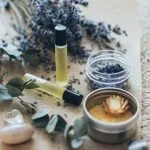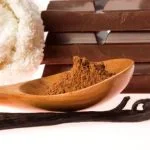CPAP aromatherapy is a growing trend in sleep apnea treatment, offering a natural approach to enhance the effectiveness of CPAP therapy. By incorporating essential oils into the CPAP therapy routine, individuals with sleep apnea may experience added benefits such as improved sleep quality and relaxation. Understanding how CPAP aromatherapy works and its potential advantages can help individuals make informed decisions about integrating aromatherapy into their treatment plan.
Aromatherapy involves using essential oils to promote physical, mental, and emotional well-being. When used in conjunction with CPAP therapy, aromatherapy can complement the treatment by addressing common issues such as nasal congestion, dryness, and discomfort associated with using a CPAP machine. This integrative approach aims to provide a more holistic solution to sleep apnea symptoms and may offer additional relief for individuals struggling with adherence to CPAP therapy.
In this article, we will explore the benefits of incorporating aromatherapy into CPAP treatment, the types of essential oils commonly used in this practice, safety precautions to consider, different methods of usage, as well as research and personal experiences that shed light on the effectiveness of CPAP aromatherapy. Let’s delve deeper into understanding how CPAP aromatherapy works and its potential impact on improving sleep apnea management.
Understanding CPAP Therapy and Aromatherapy
CPAP therapy stands for Continuous Positive Airway Pressure therapy, which is commonly used to treat sleep apnea. It involves using a machine that delivers air through a mask while the individual sleeps. Aromatherapy, on the other hand, is the use of essential oils to improve physical or psychological well-being. When combined, CPAP aromatherapy works by introducing the use of essential oils into the CPAP machine or mask to enhance the overall effectiveness of the treatment.
There are various methods of incorporating aromatherapy into CPAP therapy. Some options include using diffusers, adding essential oils to the CPAP humidifier, or applying a few drops of essential oil onto the mask before wearing it. This allows for a seamless integration between traditional CPAP therapy and aromatherapy.
The benefits of using aromatherapy with CPAP therapy are numerous. Essential oils such as lavender, peppermint, and eucalyptus can help promote relaxation, reduce anxiety, and improve sleep quality. Furthermore, certain essential oils have anti-inflammatory properties that may help alleviate nasal congestion and improve breathing during sleep. Additionally, by promoting relaxation and reducing stress levels, aromatherapy may complement the overall goal of CPAP therapy in managing sleep apnea effectively.
Benefits of Aromatherapy in CPAP Treatment
Aromatherapy has been used for centuries as a natural remedy to promote relaxation and improve overall well-being. When combined with CPAP therapy, it can offer additional benefits for individuals suffering from sleep apnea. Here are some of the key benefits of incorporating aromatherapy into CPAP treatment:
1. Enhanced Relaxation: Aromatherapy can help create a calming and soothing environment that promotes relaxation, which is essential for individuals using CPAP machines to treat sleep apnea. The use of essential oils in aromatherapy can have a direct impact on reducing stress and anxiety levels, thus making it easier for CPAP users to fall asleep.
2. Improved Sleep Quality: Studies have shown that certain essential oils used in aromatherapy can aid in improving the overall quality of sleep. By promoting deeper and more restful sleep, individuals undergoing CPAP therapy may experience better treatment outcomes and an overall improvement in their sleep apnea symptoms.
3. Alleviation of Nasal Congestion: Many essential oils used in aromatherapy have natural decongestant properties, which can be beneficial for individuals who experience nasal congestion as a result of using a CPAP machine. By adding a few drops of these oils to the CPAP humidifier, it can help clear the nasal passages and promote easier breathing during sleep.
Given these advantages, it’s no wonder why many individuals are turning to CPAP aromatherapy as a complementary treatment for sleep apnea. By harnessing the power of essential oils, it offers potential relief from common issues associated with CPAP therapy while promoting a more restful and rejuvenating night’s sleep. How does cpap aromatherapy work? It works by utilizing the natural therapeutic properties found in essential oils to enhance the overall effectiveness of CPAP treatment.
Types of Essential Oils Used in CPAP Aromatherapy
Lavender Oil
Lavender oil is one of the most popular essential oils used in CPAP aromatherapy. It is known for its calming and relaxing properties, making it an ideal choice for promoting a restful night’s sleep. Research has shown that inhaling lavender oil can help reduce anxiety and improve sleep quality, making it a great option for individuals with sleep apnea who may struggle with both.
Eucalyptus Oil
Eucalyptus oil is another essential oil commonly used in CPAP aromatherapy. Known for its decongestant properties, eucalyptus oil can help clear the airways and promote easier breathing, which can be particularly beneficial for individuals with sleep apnea. Its refreshing and invigorating scent can also help combat fatigue and promote mental alertness, making it a popular choice for CPAP users looking to enhance their overall sleep experience.
Peppermint Oil
Peppermint oil is often used in CPAP aromatherapy to help alleviate nasal congestion and promote clearer breathing. Its cooling and soothing properties can provide relief from sinus-related discomfort, making it a valuable tool for individuals using CPAP therapy. Additionally, peppermint oil’s refreshing scent can help promote wakefulness and mental clarity, which can be especially helpful for those who struggle with daytime drowsiness due to sleep apnea.
Overall, there are various essential oils that can be used in CPAP aromatherapy to enhance the effectiveness of treatment and improve the overall sleep experience for individuals with sleep apnea. Understanding the different properties and benefits of each essential oil can help CPAP users choose the best option to suit their individual needs.
Safety and Precautions in Using Aromatherapy With CPAP
Using aromatherapy with CPAP therapy can provide several benefits for individuals with sleep apnea. However, it is important to consider safety and precautions when incorporating aromatherapy into CPAP treatment.
Essential oils used in aromatherapy can be very potent, and individuals using CPAP machines should exercise caution when using them in conjunction with their therapy. Some essential oils may cause irritation to the airways or skin, especially if they are not properly diluted. It is important to consult a healthcare professional or aromatherapist who is knowledgeable about CPAP therapy before using essential oils.
In addition, it is crucial to ensure that the essential oil diffuser used with the CPAP machine is compatible and safe for use with medical equipment. Using an incompatible diffuser can potentially damage the CPAP machine or compromise its effectiveness. It is recommended to choose a diffuser specifically designed for use with CPAP equipment, and to carefully follow the manufacturer’s instructions for use.
Lastly, individuals using aromatherapy with their CPAP therapy should be mindful of any allergies or sensitivities they may have to specific essential oils. Some oils can trigger allergic reactions or respiratory irritation in certain individuals, which could exacerbate symptoms of sleep apnea rather than alleviate them.
| Safety Concerns | Precautions |
|---|---|
| Utilize properly diluted essential oils | Consult healthcare professional or aromatherapist |
| Use compatible diffuser for CPAP machine | Follow manufacturer’s instructions |
| Beware of allergens & irritants in essential oils | Be mindful of individual allergies/sensitivities |
Methods of Using Aromatherapy With CPAP
Aromatherapy can be used in conjunction with CPAP therapy in several different ways to enhance the overall treatment experience. One method is to apply a few drops of essential oil onto a cloth or tissue and place it near the CPAP machine’s intake so that the aroma is carried into the airflow. Another method is to use a CPAP aromatherapy diffuser, which attaches directly to the CPAP machine and releases essential oils into the air as the patient breathes.
Additionally, some patients choose to apply a small amount of diluted essential oil onto their skin before putting on their CPAP mask. The warmth and humidity from the mask may help to release the scent for inhalation. It is important to note that whichever method is chosen, it should be done with caution and moderation to prevent any adverse reactions or irritation.
Some people find that experimenting with different methods and types of essential oils can help them find what works best for their individual needs. Some individuals may prefer a more subtle approach, while others may prefer a stronger scent. Finding the right balance can contribute positively to overall compliance with CPAP therapy.
| Method | Description |
|---|---|
| Air diffusion | Essential oils are added near the CPAP machine’s intake, where they are drawn into the airflow. |
| CPAP aromatherapy diffuser | An attachment for the CPAP machine that releases essential oils into the air during use. |
| Topical application | Skin application of diluted essential oil before using the CPAP mask. |
Research and Studies on the Effectiveness of CPAP Aromatherapy
Evidence-Based Research
There have been several studies conducted to determine the effectiveness of CPAP aromatherapy in improving the quality of sleep for individuals with sleep apnea. One study published in the Journal of Clinical Sleep Medicine found that using essential oils with CPAP therapy improved adherence to treatment and overall sleep quality. Another study in the Sleep Medicine Clinics also showed that aromatherapy combined with CPAP reduced feelings of anxiety and improved relaxation during sleep.
Impact on Treatment Adherence
Research has also indicated that incorporating aromatherapy into CPAP treatment can have a positive impact on patient adherence. A study in BMC Complementary Medicine and Therapies revealed that patients who used essential oils during CPAP therapy reported a higher level of comfort and satisfaction, leading to increased compliance with their treatment regimen. This highlights the potential role of aromatherapy in addressing common challenges related to CPAP therapy, such as discomfort and nasal congestion.
Potential Mechanisms of Action
While more research is needed to fully understand how exactly CPAP aromatherapy works, some proposed mechanisms include the direct effects of essential oils on the respiratory system, as well as their ability to promote relaxation and reduce stress. Additionally, certain compounds found in essential oils may have anti-inflammatory properties that could complement the therapeutic effects of CPAP in managing sleep apnea. Further studies are underway to elucidate the specific pathways through which aromatherapy enhances the outcomes of CPAP treatment.
As ongoing research continues to explore the potential benefits and mechanisms behind CPAP aromatherapy, it is important for healthcare professionals and patients to consider incorporating this complementary approach into their sleep apnea management strategies. With a growing body of evidence supporting its effectiveness, CPAP aromatherapy holds promise as a valuable adjunct to standard treatment protocols for improving sleep quality and overall well-being for individuals with sleep apnea.
Personal Experiences With CPAP Aromatherapy
When it comes to personal experiences with CPAP aromatherapy, many individuals have reported positive effects on their sleep apnea treatment. One common experience is the improvement in overall sleep quality and the ability to fall asleep faster when using aromatherapy with CPAP therapy. Many users have also reported feeling more relaxed and experiencing a reduction in stress and anxiety, which can significantly contribute to better sleep.
Another common personal experience with CPAP aromatherapy is the improvement in nasal congestion and breathing difficulties. The use of essential oils such as eucalyptus or peppermint can help clear nasal passages and airways, making it easier for individuals to breathe while using their CPAP machine. This can lead to a more comfortable and effective treatment for sleep apnea.
Additionally, some individuals have reported experiencing a boost in mood and a sense of well-being when incorporating aromatherapy into their CPAP therapy. The pleasant scents of essential oils can have a calming effect on the mind, leading to an overall improvement in mental and emotional health. These personal experiences highlight how CPAP aromatherapy can enhance the effectiveness of traditional CPAP treatment and improve the overall well-being of individuals with sleep apnea.
Overall, the personal experiences with CPAP aromatherapy reflect the potential benefits of integrating essential oils into CPAP therapy. As more individuals explore this complementary approach to sleep apnea treatment, there is growing interest in understanding how does cpap aromatherapy work and its impact on improving the effectiveness of CPAP treatment.
Conclusion
In conclusion, the future of CPAP aromatherapy in sleep apnea treatment looks promising. As more research is conducted and more individuals share their personal experiences, it becomes increasingly clear that aromatherapy can play a significant role in enhancing the effectiveness of CPAP therapy.
The benefits of using essential oils in conjunction with CPAP machines are undeniable, as they can help alleviate symptoms such as congestion, dryness, and discomfort. Additionally, the soothing scents can promote relaxation and improve overall sleep quality for individuals with sleep apnea.
As we continue to understand how CPAP aromatherapy works, it is essential to emphasize the importance of safety and precautions when using essential oils with CPAP machines. It is crucial to follow guidelines and recommendations for proper usage to avoid any potential adverse effects. With the variety of essential oils available, it is also important for users to be aware of any allergies or sensitivities they may have to specific scents.
Frequently Asked Questions
Is CPAP Aromatherapy Safe?
CPAP aromatherapy can be safe when used properly and with caution. It is important to use essential oils that are safe for inhalation and to carefully follow the manufacturer’s instructions for using aromatherapy with a CPAP machine.
What Does a CPAP Diffuser Do?
A CPAP diffuser is designed to work with a CPAP machine to deliver essential oils into the airway while a person is using the device. The diffuser attaches to the CPAP tubing and disperses the aroma of the essential oils, providing an additional therapeutic benefit during sleep.
How Does Aromatherapy Work Scientifically?
Aromatherapy works scientifically by stimulating the olfactory system, which in turn affects the brain and central nervous system. When inhaled, essential oil molecules reach the olfactory receptors in the nose and then travel to the limbic system, where they can have an impact on emotions, heart rate, stress levels, and other physiological functions.

Are you looking for a natural way to improve your health and wellbeing?
If so, aromatherapy may be the answer for you.





